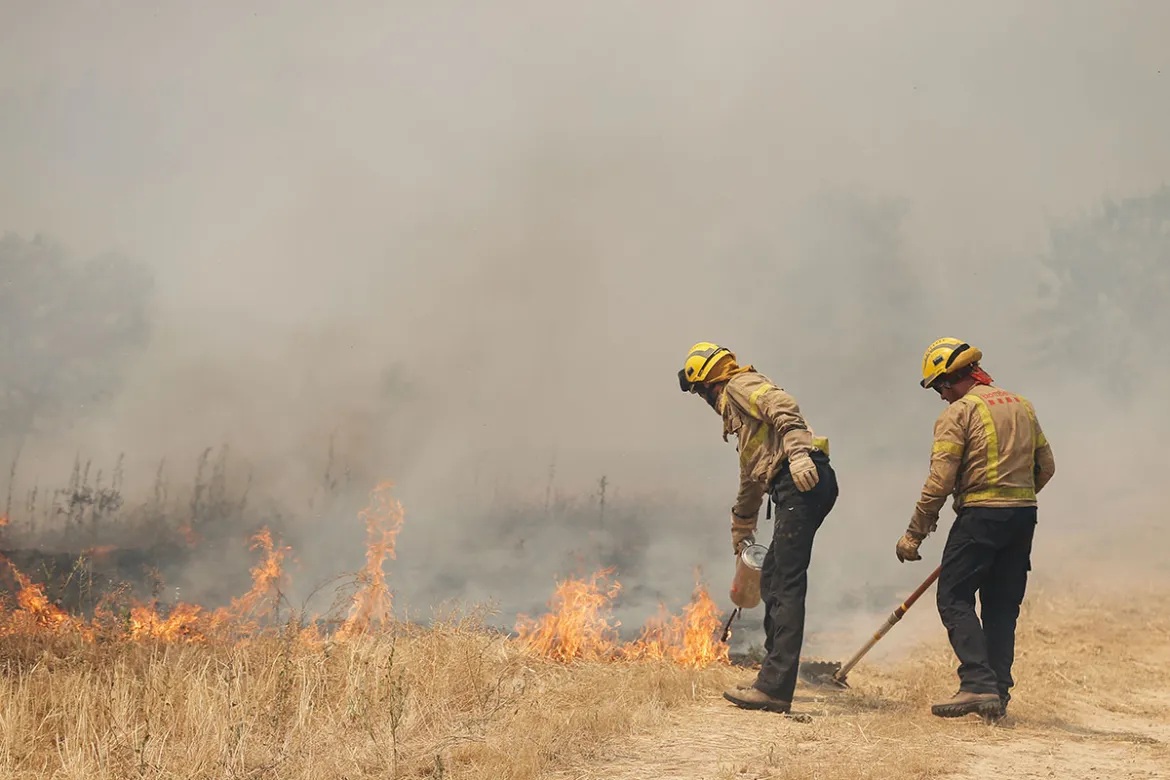Across Europe, a relentless heatwave is gripping the continent, pushing temperatures to record-breaking highs and placing millions at risk.
In Spain, the crisis has turned deadly as of Tuesday, July 1, 2025, with three fatalities reported as the country endures one of its most severe heatwaves in recent history.
Local media reports say Temperatures in some Spanish regions have soared above 45°C.
This has reportedly forced authorities to issue urgent public health warnings and triggering widespread concern among both residents and officials.
A Heatwave with Deadly Consequences
The tragic deaths in Spain underscore the very real dangers posed by extreme heat.
Health officials attribute these fatalities to heat-related causes, a stark reminder that soaring temperatures are uncomfortable.
They can be life-threatening, especially for vulnerable populations such as the elderly, children, and those with pre-existing health conditions.
The Spanish government has responded by urging citizens to stay indoors during the hottest parts of the day, remain hydrated, and check on neighbors who may be at risk.
Europe-wide Impact
Spain is not alone in facing the wrath of this heatwave.
Neighboring countries including France, Italy, Germany, and Portugal are also experiencing extreme temperatures, prompting similar health advisories and emergency measures.
In France and Italy, authorities have set up cooling centers and distributed water in public spaces.
Germany and Portugal on the other hand, have issued alerts for potential disruptions to transport and energy infrastructure due to the heat.
The widespread nature of this event is causing significant disruptions to daily life.
Public transport systems are straining under the heat, with delays and cancellations reported in several major cities.
Outdoor events have been postponed or canceled, and many businesses are adjusting working hours to protect employees from the worst of the heat.
Health Risks and Safety Measures
Extreme heat poses a range of health risks, from dehydration and heat exhaustion to potentially fatal heatstroke.
Medical professionals emphasize the importance of recognizing early symptoms, such as dizziness, excessive sweating, rapid heartbeat, and confusion, and seeking immediate help if these occur.
Authorities across affected countries are repeating crucial health advisories: stay indoors during peak heat hours, drink plenty of water, and avoid strenuous outdoor activities.
Special attention is being directed toward vulnerable groups.
Social services are conducting outreach to check on elderly residents.
Also, community organizations are mobilizing to ensure that those without adequate shelter or air conditioning have access to cooler environments.
A Symptom of Climate Change
Climate experts warn that the current heatwave is not an isolated incident, but part of a troubling trend.
The increasing frequency and intensity of such extreme weather events are closely linked to global warming and climate change.
As greenhouse gas emissions continue to rise, scientists predict that Europe will face even more severe heatwaves in the coming years.
According to them, there will be profound implications for public health, agriculture, and infrastructure.
This latest crisis has reignited calls for urgent action on climate change.
Environmental advocates are urging governments to accelerate efforts to reduce carbon emissions and invest in renewable energy.
They urge governments to also implement adaptation strategies to protect communities from the escalating impacts of extreme weather.
Global Implications and the Path Forward
The situation unfolding in Spain and across Europe is a stark reminder that extreme weather events are becoming a global reality.
For people aged 20 to 65, the message is clear: climate change is not a distant threat, but a present and growing danger that demands immediate attention and collective action.
Individuals can take steps to protect themselves and their communities and by staying informed.
They can also stay protected by following public health guidance and supporting policies that address climate change.
At the same time, governments and international organizations must prioritize resilience, preparedness, and sustainability to safeguard lives and livelihoods in an increasingly unpredictable world.
As Europe battles this latest heatwave, the hope is that the lessons learned will spur meaningful change, ensuring that future generations are better equipped to face the challenges of a warming planet.



